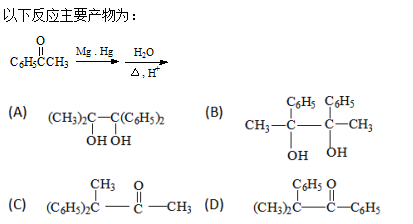第一章 单元测试
1、判断题:
Wu-gu (五谷) includes sesame.
选项:
A:对
B:错
答案: 【错】
2、判断题:
Kuai zhi (脍炙) is a way of cooking meat.
选项:
A:对
B:错
答案: 【对】
3、判断题:
“目光如豆” is similar to the American idiom describing people who are as blind as bats.
选项:
A:对
B:错
答案: 【错】
4、判断题:
Iron is believed to facilitate weight loss for females.
选项:
A:错
B:对
答案: 【对】
5、判断题:
“孔融让梨” and “推枣让梨” share similar moral connotations of respecting the elders and taking good care of the young.
选项:
A:错
B:对
答案: 【对】
6、判断题:
“青梅煮酒论英雄” tells us a story about Cao Cao and Guan Yu.
选项:
A:对
B:错
答案: 【错】
7、判断题:
“桃之夭夭, 灼灼其华” stems from “Records of the Grand Historian” (《史记》).
选项:
A:对
B:错
答案: 【错】
8、判断题:
“桃李不言, 下自成蹊” is a phrase used to acclaim Li Guang, a great general in the East Han dynasty.
选项:
A:对
B:错
答案: 【错】
第二章 单元测试
1、单选题:
What are the six domesticated animals, or “六畜” in Chinese?
选项:
A:Sheep, horse, ox, pig, rooster, and dog.
B:Pig, ox, sheep, tiger, dragon, and rooster.
C:Ox, tiger, rabbit, snake, dog, and monkey.
D:Horse, sheep, dog, rooster, phenix, and ox.
答案: 【Sheep, horse, ox, pig, rooster, and dog.】
2、单选题:
Diligence, undependability, strength and determination are some of major qualities attached to ox by ancient Chinese.
选项:
A:False.
B:True.
答案: 【False.】
3、单选题:
The idiom “牛刀小试” means that a person with great potentials gives a little inkling of what he is capable of.
选项:
A:True.
B:False.
答案: 【True.】
4、单选题:
Sheep, chicken, and pig are the three most commonly used sacrifice in ancient China.
选项:
A:True.
B:False.
答案: 【False.】
5、单选题:
Why do many piggy banks take the image of pig?
选项:
A:Because pigs are cute.
B:Because pigs in some places symbolize good harvest and wealth.
C:Because pigs are fat.
答案: 【Because pigs in some places symbolize good harvest and wealth.】
6、单选题:
Which of the following idioms formed by the combination of Chicken and dog is positive in meanings?
选项:
A:鸡犬不宁.
B:鸡鸣狗盗.
C:鸡犬桑麻.
答案: 【鸡犬桑麻.】
7、单选题:
Which of the following idioms formed by the combination of Dragon and Phoenix is negative in meanings?
选项:
A:龙肝凤髓.
B:攀龙附凤.
C:烹龙炮凤.
答案: 【攀龙附凤.】
第三章 单元测试
1、单选题:
Which of the following expressions is used to describe offspring’s gratitude to their parents.
选项:
A:草木一生
B:春晖寸草
C:承星履草
D:黄冠草服
答案: 【】
2、单选题:
Which of the following statements about “草” is NOT true according to the passage?
选项:
A:It is often described as either small or large.
B:Compared with woody plants, it is low and small.
C:Its size can be large or small.
答案: 【】
3、单选题:
Which expression depicts a self-sufficient and quiet life?
选项:
A:桑间之咏
B:桑户蓬枢
C:沧海桑田
D:鸡犬桑麻
答案: 【】
4、单选题:
“采菊东篱下,悠然见南山” are well-known lines written by _______.
选项:
A:苏东坡
B:陶渊明
C:王羲之
答案: 【】
5、单选题:
Chinese people express their steadfast loyalty with _______.
选项:
A:松柏之茂
B:松柏之志
C:松柏之寿
答案: 【】
第四章 单元测试
1、单选题:
Originally, “日出而作, 日入而息” came from a song popular in _______.
选项:
A:the Qin Dynasty
B:the Zhou Dynasty
C:Xian Qin (先秦)
答案: 【】
2、单选题:
Li Shen (李绅) was a poet of the _______ Dynasty.
选项:
A:Song
B:Ming
C:Tang
答案: 【】
3、单选题:
Which of the following statements about Su Shi (苏轼) is false?
选项:
A:He has never been to Danzhou (儋州).
B:He experienced ups and downs in his life.
C:He was famous for his poems and calligraphy.
答案: 【】
4、单选题:
Which of the following idioms describes the weather ancient farmers pray for?
选项:
A:疾风骤雨
B:五风十雨
C:瓢泼大雨
答案: 【
5、单选题:
Which of the following idioms originates from the story in Romance of the Three Kingdoms (《三国演义》)?
选项:
A:万事俱备, 只欠东风
B:春风化雨
C:春风得意
答案: 【
第五章 单元测试
1、单选题:
A synonym for “水” is ________.
选项:
A:川
B:河
C:江
答案: 【】
2、单选题:
Which one of the following is NOT included in the five most renowned mountains Wu Yue (五岳) in China?
选项:
A:Mount Huang (黄山)
B:Mount Tai (泰山)
C:Mount Hua (华山)
答案: 【】
3、单选题:
Which of the following men is related to the idiom “覆水难收”?
选项:
A:Jiang Ziya (姜子牙)
B:Li Shimin (李世民)
C:Li Er (李耳)
答案: 【】
4、单选题:
In the idiom “水能载舟亦能覆舟”, Wei Zheng (魏征) compared the collective power of water to that of ________.
选项:
A:an official
B:ordinary people
C:an emperor
答案: 【】
5、单选题:
The goddess of “巫山神女” is _________.
选项:
A:Xi Gui (息妫)
B:Yaoji (瑶姬)
C:Fufei (宓妃)
答案: 【
6、单选题:
Which of the following idioms is NOT used to describe the beauty of a woman?
选项:
A:翩若惊鸿
B:明眸善睐
C:巫山云雨
答案: 【
7、单选题:
Which of the following idioms best suggests the spirit of “selfless devotion to public welfare”?
选项:
A:河伯为患
B:过门不入
C:精卫填海
答案: 【】
8、单选题:
Which of the following idioms best suggests the spirit of “tough-minded and independent as a key player to confront challenges and conquer difficulties”?
选项:
A:中流砥柱
B:天府之国
C:过门不入
答案: 【】



请先 !